
Abstract: After 20 plus years as a sustainability educator, the author had one of those lie-awake-at-night-staring-at-the-ceiling experiences where she faced some hard questions about the state of the world. In this article, describes her subsequent journey investigating the role of listening in shifting to a life-sustaining society and her Ph.D. research into how to support listening across differences to address complex social-ecological challenges.
Continue Reading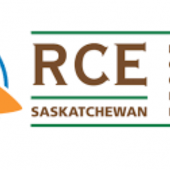
Abstract: Three decades ago Julius Nyerere (1990) wrote Challenge to the South. In response to the legacy of colonialism, Nyerere challenged the nations of the Global South to advance their development and to free their people. These concerns are as relevant today as they were in the 1990s. Established for the United Nations Decade of Education Sustainable Development in 2005, there are now over 175 Regional Centres of Expertise (RCEs) on Education for sustainable Development (ESD). This paper offers a case study of RCEs worldwide with a particular focus on challenges, and responses, including a focus on the select Sustainable Development Goals (SDGs) of poverty and health. Further, an account is given of RCEs which have attended to the recognition of Indigenous and traditional ways of knowing.
Continue Reading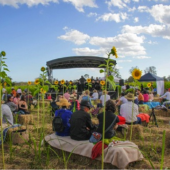
Abstract: Solutions to environmentally damaging human practices require cooperation between many different communities. This article explores sustainability-focused education through the lens of a current work-in-progress, Sugar vs the Reef?, which involves collaboration between sugarcane farmers and artists in the arable catchment of the Great Barrier Reef in North Queensland. This is a socially engaged art project that is addressing the fraught relationship between the region’s agriculture and the fragile ecology of the Reef. We introduce some of the specific aspects of socially engaged art (SEA) which commend it as a cross-disciplinary method for bridging diverse individuals and organisations – in particular, the notion of a “holding environment” for complex socio-ecological situations. We consider how this approach might broaden the agricultural practice of “extension” which aims to transform farming through educational outreach. Ideas emerging from contemporary socially engaged art practice may contribute to a toolkit for researchers and practitioners within and beyond the academy who are searching for ways to overcome the limitations of current methodologies and movements for social change.
Continue Reading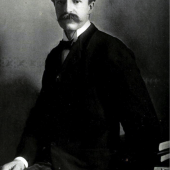
Some scholars of leadership for sustainability argue that more research needs to be done on the ‘who’ of leaders, the core drivers of the ‘what’ and ‘how’ of their decisions and actions. This paper looks at a leading US figure in sustainability, Gifford Pinchot, who led the establishment of the US Forest Service, and who devoted much of his career to conserving the natural world for the good of his fellow citizens. It describes the formation of the ‘who’ of Pinchot as an adult leader through a focus on his early learning environment in order to point to some essential and timeless principles for the education of leaders of sustainability.
Continue Reading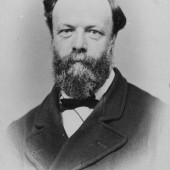
Abstract Innovation for sustainable environments is typically thought of as synonymous with the scientific and the future. This paper argues that historical stories about innovation to create sustainable communities in the past has a contribution to make to research and teaching in the field. It outlines the innovation of forestry in Australia in the nineteenth century, and the thought leadership of the prominent public servant who realized it. It argues that, together with science, students of sustainable environments need to learn to think holistically, framed first by an ethical vision of what a sustainable civil society looks like.
Continue Reading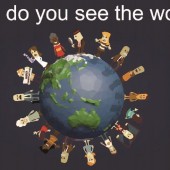
Abstract: Latest results in Education for Sustainable Development (ESD) research and practice show a tendency towards more holistic approaches aiming at deep transformation of the self and the meanings of human existence. Aligned with this, we present the Transdisciplinary Framework of Worldviews and Behaviours (TFWB) to describe the possible formation and expression of a worldview, a complex constellation of meaning and identity from which all human conduct emerges. Four key principles arising from the TFWB are: 1) The whole embodied nervous system is greater than the sum of its separated parts, especially when it comes to intelligence (information processing) and learning (meaning making); 2) The mind is a highly emotion-dependent and mostly unconscious entity; 3) A worldview is a unique arrangement of meaning each person builds, and lives through; and 4) Increasing self-awareness about how a personal worldview is formed and expressed generates increasing opportunities for that individual to explore and build a different meaning for their experience, or to explore and choose different forms to express it (behave). The TFWB informs a new perspective on learning that could be useful for the achievement of ESD’s transformative goals, guiding the innovative design of educational initiatives encouraging new conceptualizations about the meanings of being human; thus, facilitating potential behavioural transformations toward a more sustainable existence.
Continue Reading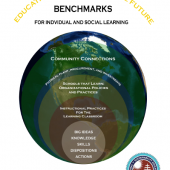
This document is a provisional draft that has emerged out of an initial “State of the Field” issue and database, published in JSE in 2014 and a follow-up conference in Winter of 2015.
Jaimie Cloud of the Cloud Institute has been the lead organizer and author of this document. See the opening pages for the large number of additional contributors.
A process for comment and revision will be announced during Spring/summer 2016.
Continue Reading
Abstract: This photo essay reflects one sense of place from Mauna Kea.
Continue Reading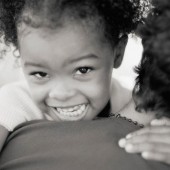
Too much of education, especially following the Western Enlightenment model and its increased use of scientific, quantifiable metrics, has seemed to completely forget that love and emotional intelligence have everything to do with what and how well the human child learns. In a globalizing society facing shared environmental and social crises of existential proportions, this forgotten understanding is fatal to real hopes of education for sustainability and healthy human and planetary life. Love is simply too critical an emotion to understand and incorporate into education, and it has been too long left out in the cold. But cold it has been for the human mind focusing on only rational/objective and emotion-denying forms of learning and intelligence, creating minds unmoved by the thus un-felt facts of an increasingly globally warming and more confused world.
Continue Reading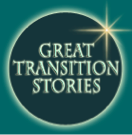
The stories we tell shape our view of ourselves and the path we take through this time of collective awakening and global turning. We have the ability to consciously choose narratives that offer realistic beacons of hope to guide our way through the Great Transition. To achieve authentic and lasting reconciliation as the foundation for our future, we require the power of love and compassion as a practical basis for organizing human affairs.
Continue Reading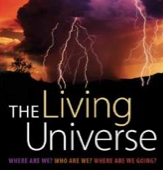
In The Living Universe: Where are We, Who are We, and Where are We Going, Duane Elgin presents a powerfully compelling argument that the most fundamental challenge facing humanity during this time of crisis is to visualize a future of great opportunity and that the foundational story guiding the reality people create on Earth is whether the universe is alive and to be loved and nurtured or dead and to be feared and consumed. This article provides a review of this powerful book with an eye to the connection between love and sustainability.
Continue ReadingThe purpose of this article is to articulate the significance of education for sustainable development in order to support the integration of sustainability as a cross-curricular priority within the newly developed Australian Curriculum. An investigation into the implementation of sustainability across the curriculum was carried out in two Australian public schools in order to identify its relevancy to various learning areas. The developmental history of the Australian Curriculum will be explored to contextualize this article within the current socio-political environment. Discussions with teachers suggested that the political agendas surrounding the curriculum had influenced the implementation of sustainability in different learning areas. The school located in the Labor electorate had demonstrated their ability to implement sustainability in all six learning areas investigated. Results from the school located within the Liberal electorate showed that sustainability was less of a priority with the implementation of three out of the six learning areas teaching sustainability organizing ideas to students. Semi-structured interviews were conducted with the head of curriculum of both schools and their perception of the environment was determined using Sauvè’s (1992, 1994) typology of conceptions for the environment. Focus group discussions with year seven and ten students had identified conceptions similar to that of their head of curriculum. Students identified environmental issues in their discussions and suggested education, as a means for combating climate change. Students expressed that sustainability was important and did so with concerns for the future.
Continue Reading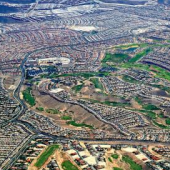
Like sprawl itself, writing about sprawl is scattered in a vast multidisciplinary literature. In this paper we provide a map of what is increasingly known about urban sprawl in emerging literature. This review of progress includes four main parts—definition, data, methods of measurement, and environmental consequences of urban sprawl. The focus of this literature review is to determine whether the aforementioned parts are elements of a connected system in which progress in any one part reflects in others, thereby enhancing knowledge of urban sprawl’s environmental consequences through a cross-fertilization with progress in how sprawl is defined, data are used, and phenomena are measured. We conclude with a discussion of areas of further research that surmounts the shortcomings of a disconnected, epistemic (knowledge) system of definitions, data, and methods, and points toward an explanation of urban sprawl’s environmental consequences. The implications for the education of urban sustainability are noted.
Continue Reading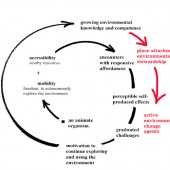
Learning in the outdoors has significant educational advantages for children in the Primary School years and the need to connect with nature is becoming increasingly prominent in research worldwide. Pro-environmental behaviour, especially in the early years, has been shown to have a causal relationship with connectivity with the natural environment. Place-based outdoor learning promotes a relationship with the natural environment and constructs deep environmental knowledge and understanding of the world that surrounds learners. Embedding Indigenous culture and knowledge into outdoor learning within Primary School programs enables local knowledge and understanding to permeate throughout activities in explicit and experiential ways. A place-based pedagogy recognises the importance of forming intimate relationships with place through regular visitations to the same outdoor environment. One of the many global challenges confronting teachers working in Primary schools is how to implement holistic learning into their educational programs. This paper explores how an Australian case study utilises place-based outdoor learning and environmental sustainability within the school curriculum.
Continue Reading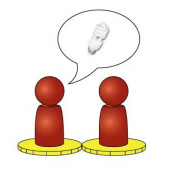
As sustainability educators and communication professionals consider various strategies to engage audiences with regard to household energy use, one option now seemingly available is to leverage social networks by encouraging people to share information with others they know. At the same time, we currently do not know enough about the potential spread of energy-related information in this fashion. Whether, when, or how people share energy-related information with peers or family members are crucial questions, for example. Using national survey data from U.S. residents (n=816), we predicted energy information sharing as a function of objective energy knowledge (measured using a factual energy knowledge index), perceived energy understanding, and demographic variables. Our analyses underscored the importance of assessing not only factual energy knowledge but also perceived understanding, as both are equally predictive of energy information sharing frequency (β=.11, p<.05, for objective knowledge and β=.11, p<.01 for perceived understanding). Number of children also predicted energy information sharing, β=.11, p<.01. We discuss the implications of these results for informal energy education efforts in the 21st century.
Continue Reading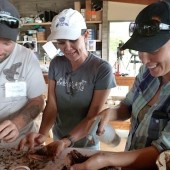
We are faced with a multitude of environmental challenges today, including sustainable food, water, land, and energy resources. As we strive to understand and address these resource issues, we become keenly aware that there are neither quick fixes nor short-term solutions. Consequently, these resource issues will be handed down from this generation to the next—and to the next—for progressive resolution. Therefore, our students need to have an education grounded in STEM (science, technology, engineering, and mathematics) that will prepare them to become the systems thinkers, critical analyzers, and creative problems solvers that living sustainably on this planet demands. In order to benefit from such an education, our students require teachers who are not only well-trained in STEM concepts and skills but also understand how to create authentic, standards- and experienced-based learning activities for their students in meaningful educational settings. To address this requirement, a year-long, experience-based School Learning Gardens Professional Development Program was created for teachers, implemented by the The Kohala Center’s Hawaiʻi Island School Garden Network on the Big Island of Hawaiʻi, and funded through a USDA/SPECA “Ag in the Classroom K-12” grant. This study was conducted with the 29 classroom and school learning garden teachers who participated in the week-long teacher training workshop component of the program. The study examined teachers’ attitudes toward sustainability education before and after the workshop. Teachers’ attitudes were measured using the Teachers’ Attitudes Related to Sustainability Education survey. Findings revealed that there was a statistically significant increase in teachers’ overall attitudes toward sustainability education, as well as their attitudes related to productivity and comfort within sustainability education.
These findings were viewed as an essential first step in assuring that teachers were prepared and willing to provide students with meaningful, experience-based school learning garden activities that hold promise for an environmentally-sound and resource-sustainable future for generations to come.
Continue Reading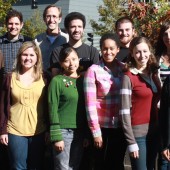
This article discusses the evolution and work of Brown University’s Climate and Development Lab (CDL). As leaders of the CDL, we engaged students in experiential education while attending the United Nations climate change negotiations in Cancun, Mexico in 2010, and in Durban, South Africa in 2011. Simultaneously, we collaborated with students to provide relevant and timely research and public scholarship oriented by the goal of advancing global justice in international climate change policy. Here we offer a conceptualization of our pedagogy for the CDL, which is a synthesis of two guiding principles: ‘engaged education’ and ‘global just sustainability’. We discuss the ways in which we organized the CDL in relation to this pedagogy and everyday logistics, and reflect upon our accomplishments and the challenges that we faced. We argue that while there are areas where we can improve upon our practice, the potential of this type of learning is considerable, and can be complementary to producing scholarly outputs that contribute to a more just and sustainable world.
Continue Reading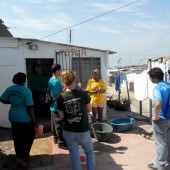
It is widely acknowledged that the sustainability challenges facing the world require new approaches to teaching and learning. At the community level, however, sustainability priorities are context specific, so prescriptions of what and how to teach for sustainability are limiting. In higher education, one innovative approach to sustainability education that acknowledges the limits of conventional coursework involves courses based on “shared action learning” – a process in which students, faculty, and community sponsors share learning experiences while working on sustainability projects for a specific community. Shared Action Learning can be applied in any community context near or far from campus ranging from the very local campus community to distant settlements across the globe. This paper describes the processes, opportunities and challenges of shared action learning through five stages: (1) project impetus, (2) contextual research and project planning, (3) community engagement and project refinement, (4) action, and (5) reflection and reporting. The roles of students, faculty, sponsors, and communities throughout the semester-long shared action learning project are explored through two examples – a course at Clark University in Worcester, MA that focuses on SAL within the college campus community and a Worcester Polytechnic Institute program through which students work on projects with partners in informal settlements in Cape Town, South Africa.
Continue Reading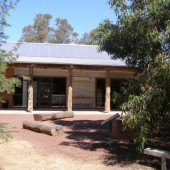
Place-based education is education that is “grounded in the resources, issues, and values of the local community and focuses on using the local community as an integrating context for learning at all levels” (Powers, 2004, p. 17). The purpose for becoming conscious of places in education is to extend “notions of pedagogy and accountability outward, toward places” making learning more relevant to “the lived experiences of students and teachers… so that places matter to educators, students and citizens in tangible ways” (Gruenewald, 2003, p. 620). Although place-based education is interchangeable with a number of terms – community based learning, rural education, project-based learning, service learning, and sustainability education – it encompasses a broad hope by educators to connect student learning to their community and the community to participate in the school (Powers, 2004). Situated within this partnership between school and community fostered through place-based education is the opportunity for rural-regional sustainability. In particular, the case study showcases how a school and community in rural south-east Australia have regenerated a degraded community stock-reserve to ‘tear down’ the school walls (fences) and perform place through the (co)creation of the Flatlands Nature Reserve as a place of protection, regeneration and environmentally sustainable practices. Furthermore, the story of the Flatlands Nature Reserve shows that “place is not only local, specific and static” but can be seen as a ‘revitalizing of the commons’ (Bowers, 2005) which has co-created a place of bio-diversity, regeneration and sustainability education that has fostered rural-regional sustainability.
Continue Reading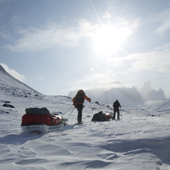
Adventure has been incorporated into sustainability education in a variety of ways, including through outdoor education and, more recently, through technology-enhanced learning. Technology has, for example, expanded opportunities for experiential learning through adventure as well as allowing learners to journey virtually along with explorers and scientists to the far-reaches of the world. This paper offers an overview of how adventure has traditionally been employed in both formal and informal education, discusses the differences between adventure education and adventure learning, shares research conducted on the role of adventure in the GoNorth! Adventure Learning Series, and advances suggestions for how adventure might be employed in sustainability education using distance, online, and mobile learning. The researchers propose the user-driven adventure learning environment (UDALE) as one model that educators and designers can draw from in both formal and informal learning settings as a means to fuse adventure, technology, and sustainability education in a pedagogically meaningful way.
Continue Reading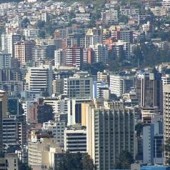
Two developing strands of a multidisciplinary literature provided an impetus for this paper: 1) the emergence of new regionalism, new urbanism, and smart codes that inform urban planning and design principles and practices for environmental sustainability, and 2) the diffusion of telecommunication and multi-media technologies that facilitate implementation of pedagogic principles in the “classroom.” The emerging urban planning and design paradigms anchor environmental sustainability issues firmly in place and space with an emphasis on the physical form of cities and regions, which, due to induced vehicular travel, is linked to greenhouse gases with consequences for climate change. Innovations that enhance learning in the classroom or the community increasingly embed and diffuse telecommunication and multimedia technologies. The intersections of urban sustainability, planning, pedagogy, and technology are briefly reviewed in this paper. It turns out that urban planning and design paradigms—particularly those with an emphasis on systemic knowledge, holistic views of both the natural and built environments, collaboration, communication, and reflective practice—synergize with environmental sustainability goals. Furthermore, these very features are ingredients for effective education for urban sustainability, particularly in conjunction with advanced telecommunication and multimedia technologies.
Continue Reading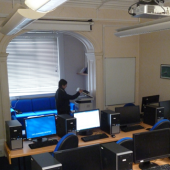
This study investigated the current energy use perceptions and practices of staff and students within five buildings at the University of Sheffield, UK. A series of focus groups with staff and post-graduate representatives from these buildings explored occupant awareness of energy consumption, perceived level of control over energy use, priorities for reduction and the perceived facilitators and barriers to reduction. Overall, personal awareness and attitudes about the need to conserve energy, the perceived actions and opinions of other users (including University authorities) and perceptions of control over the ease and opportunity to reduce energy consumption were perceived by occupants to relate to whether they would intend to conserve energy in University buildings. Recommendations for encouraging energy conservation focus on engendering greater occupant responsibility for conservation by providing a clear conservation message, participating in energy reduction schemes and providing greater energy usage information. Few papers have investigated occupant understanding of energy use in UK University and Higher Education buildings, despite large reduction targets in the sector. This paper recognises the importance that staff and student engagement will have in the successful achievement of these targets and explores their insights and perceptions.
Continue Reading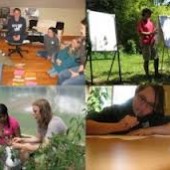
To live up to UNESCO’s definition of a sustainable development education that empowers youth with the knowledge, attitudes, motivations, commitments, and skills to solve and prevent the world’s total environmental problems, youth must be able to find meaning in the curriculum based in their own experiences and expanded through shared group experiences. An environmental-based experiential curriculum with a positive development focus can help youth reclaim their learning process and reconnect with their communities. However, without critical analysis, students, especially marginalized students, cannot develop the tools and competencies to truly understand their environment and their place within it. Linking environmental and experiential education with critical theory provides students the opportunity to develop their leadership and gain the social and cultural literacy skills needed to come in from the margins.
Continue Reading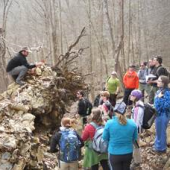
In this article I articulate what it means to understand curriculum as bioregional text. I utilize a theoretical mode of inquiry to explicate the values of bioregional education while integrating the discussion into the reconceptualized field of Curriculum Studies. The discussion addresses the value of direct experience, in our bioregion, and explains the significant contribution that can be drawn from developing a clearer understanding of our bioregional autobiography.
Continue Reading
This report describes a unique technique for presenting an introduction to sustainability science course that is both required for sustainability science majors at a large Mid-Atlantic state university and a general education non-laboratory science course. The World Scientists’ Warning to Humanity, released by the Union of Concerned Scientists in the late 1990s, serves and an indictment of humanity. The course mimics a trial as it proceeds from the indictment through an arraignment, pre-trial, trial, verdict, and sentencing with students acting both as the accused and the jury.
Continue Reading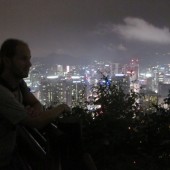
The field study (or short-term study abroad) creates a successful hybrid of study abroad and field research. These short-term educational adventures (edu-ventures) give environmental or sustainability students opportunities to gain practical knowledge while traveling domestically or overseas. In addition, it presents the opportunity for both faculty and students to extend the traditional Boyer model of scholarship, a reputable professoriate model, by developing continuity. The field study fulfills the four pedagogical goals of the Boyer model: creating research opportunities (discovery); breaking down the silos of traditional academic departments (integration); acting as consultants on-site (application); and educating students beyond the faculty members’ expertise (teaching). In addition, these field studies fulfill a fifth goal: building relationships and transgressing time (continuity). The development of this Boyer Plus model from a field-study experience serves as a tremendous tool for colleges, universities and professors to build the opportunities and necessary pedagogical skills for both traditional and non-traditional students.
Continue Reading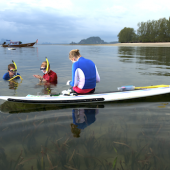
Understanding how we live (culture) and its impact on where we live (ecology) is one of the key issues facing sustainability and sustainability education. The International Sustainable Development Studies has developed a study abroad program for American college and university students in Thailand, “People, Ecology and Development” to address these issues through experiential studies of sustainability. Courses each semester focus on understanding the broader challenges of sustainable development through experiential studies of specific landscapes and cultures in the villages, mountains, coasts and islands throughout Thailand. This paper examines the key components of ISDSI’s programs, and provides a framework for understanding how these principles can be used to teach about sustainability within the broader context of issues of social justice and global learning more generally. Key components of the ISDSI approach include: community based learning — working with local communities to design courses that reflect community needs, knowledge and struggles; place-based learning — examining both the culture and ecology of specific locations, watersheds, bioregions, island archipelagos, etc.; experiential learning — learning through direct examination of and participation in the cultural practices (lifeways, norms, etc.) and study of ecological components (forests, coral reefs, etc.); and expedition based — learning during focused expeditions through the landscapes being studied, usually human powered (backpacking through remote mountain forests, sea kayaking between islands, etc.).
Continue Reading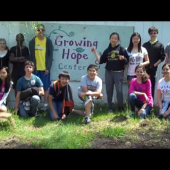
This article presents a case study of a middle school project based on the experience of two teachers and an administrator. The project gives 8th grade students an opportunity to make a difference in the world through a Sustainability Action Project. In this article you will read the rationale behind this project. You will get an overview of and a timeline for its implementation over the course of a complete academic year. We will provide you with some examples of projects as well as refer you to our school webpage where you can view these projects in more detail. Finally, we have included appendices of several of the materials we provide to our students. We hope that you will clearly see what sets this learning experience apart from other sustainability projects, and that you will be able to adopt a similar project in your school.
Continue Reading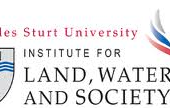
PDF: Rafferty and Laird, Spring 2013 Abstract: This paper explores the observations and perceptions of school children as they engage with nature through place based environmental experiences. The paper reports on two projects, one based in the USA and the other in Australia, designed to promote understanding of sustainability through outdoor […]
Continue Reading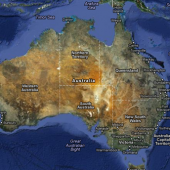
In this report from “down under,” Linda Zibell recounts the triumph of eco-centric language over a techno-centric approach to bringing sustainability into the Australian school curriculum. She brings deep insight into deconstructing the power of word choice and language patterns with real examples of how school-age kids might perceive and understand the words we use.
Continue Reading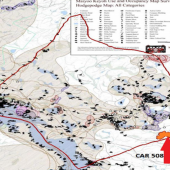
Effective bases of environmental decision-making build upon multiple and divergent understandings of landscapes and landscape connection. This paper develops ‘ethnogeomorphology’ as a tool for developing a shared (if contested) landscape platform for sharing worldviews and perspectives. Interfaces of intercultural communication, particularly with many Indigenous knowledges, are spaces of crucial juncture in understanding challenges of environmental and social sustainability and their relevance extends far beyond only ‘Indigenous studies’. Methodologies that aim to empower many Indigenous communities in documenting their knowledges can fail when attempting to communicate them in terms of conventional cause-and-effect science based on assumptions of linear and static spatial perspectives. This paper documents one such failure in practice with the Maiyoo Keyoh in Canada, and draws upon research conducted with the Yorta Yorta Nation (south-eastern Australia), the Stò:lō Nation (British Columbia, Canada), the Maiyoo Keyoh (northern British Columbia) and the Tia Kina Te Taiao (in New Zealand), from 2007-2011. Emerging insights in geography offer critical insight in addressing some of these challenges in practical ways, as increasing unrest in ‘physical’ disciplines (such as geomorphology), contest traditional binaries between ‘physical’ and ‘human’. This paper argues that geomorphic landscapes themselves are good learning tools that illustrate dynamic time-spaces. Recent developments around concepts of emergence, contingency and complexity, addressed through system-specific applications, point to reengagement with ‘place’. Similarly, conceptual developments in human geography see concepts of “scale as relation” rather than ‘scale as level’, also offers synergistic perspectives with physical geography founded on seeing multiple scales simultaneously. This solid grounding of coherence in geography could contribute to a practical and grounded basis of sustainability. Rather than being limited to theoretical debates, this paper illustrates the potential of a hybrid geography in practice. This convergence/hybridity in perspectives is not a conflation of knowledges, but an opportunity for situating worldviews in dialogue, assisting efforts to decolonize intercultural communication and promote ethical engagement in practice. This ‘ethnogeomorphic’ perspective offers a reconsideration of the term ‘adaptive’ in ‘adaptive management’, framed around multiple connections to landscapes, rather than as a tool restricted to Western science.
Continue Reading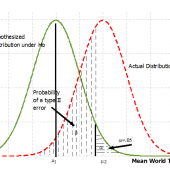
Dave Tomkins and Panagiotis Tsigaris focus their fine analytical stats skills on how to not to make the wrong kind of error…yes, that should be the right logic…regarding global warming. They elegantly lay out the math behind what we all know intuitively…nothing is to be lost from taking precautions regarding global warming, or avoiding Type II statistical error, which comes, not from assuming that humans caused global warming, even when we didn’t, but rather being unable to prove that humans cause global warming, when in fact we are causing it. They present the statistics in the context of a course case study and make it clear that we have no reason to wait on the data since the potential for this type of error is already with us and the actions to be taken are probably beneficial in other areas as well.
Continue Reading
Sponsoring the Journal of Sustainability Education The Journal of Sustainability Education is actively seeking partners, sponsors, and donors to collaborate on moving the field of sustainability education outward and deeper. The Journal is a premiere publication with dynamic content: a blend of peer reviewed and timely interviews and media pieces that draws 700,000 web views per year. […]
Continue Reading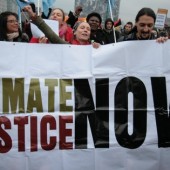
In this insightful review of Brian Tokar’s book, Randall Amster hails the work as a hopeful response to climate change that, rather than playing off of apocalyptic scenarios, envisions a future where society is re-structured not only in technological and economical terms, but also towards a more socially equitable way of life.
Continue Reading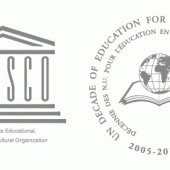
The Education for Sustainable Development (ESD) community, argues Robert Bray, is shy to confront controversy. In this quick review of three controversial issues—population control, the role of science, and limits to growth—he quickly points out how important it is to embrace controversy as a way to arrive at sound policy.
Continue Reading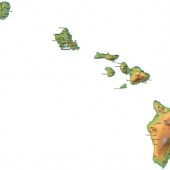
John Cusick reports on the compromises needed to bring place-based and hands-on sustainability curricula into at-risk schools where teachers and administers feel constrained by No Child Left Behind. The local Festival and Science Fair exhibits he describes help meet this challenge, for the theme of watershed education in Hawai‘i.
Continue Reading